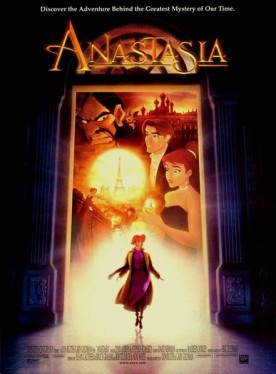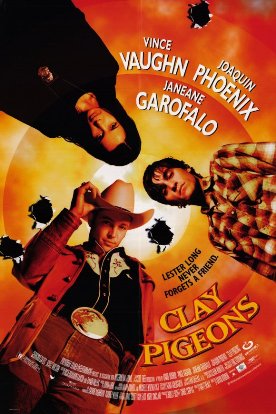Company Man
Bad jokes are like rotten apples: it only takes a few of them to spoil the whole barrel. Company Man, a co-written, co-directed effort by Douglas McGrath and Peter Askin, starts off very promisingly. Its jokes are crisp and tart and juicy. But not long into it we take our first bite of the rotten apple, and thereafter even the good jokes lose their sweetness. We begin to realize that they are not quite on the mark. The story concerns Alan Quimp (Mr. McGrath) a teacher of English grammar at a New England prep school whose upper-class wife, Daisy (Sigourney Weaver) and family have higher ambitions for him. “It’s 1959, Alan,” his father-in-law menaces. “A good time to be a white male. Get a nine-to-five, three martini, six figure job within the month or I will get in my Cadillac and back over you.”
Well, there’s an example. In 1959 people didn’t yet know that it was a good time to be a white male. They didn’t talk that way. It is a small sloppiness, but a sloppiness all the same. And as the film goes on the sloppiness becomes more and more obvious. Alan pretends to be a CIA agent, the grammar teaching job only a cover, in order to keep the family happy, but through the accident of helping a Russian ballet dancer (Ryan Phillipe) to escape, he is asked by the CIA to become an agent for real, and is sent off to what seems at the time to be the quiet backwater of Cuba under the dictatorship of Batista (Alan Cuming).
As the film’s running joke, Quimp keeps correcting everybody’s grammar and so stumbling onto more and more vital information for the CIA, personified on the island by Agents Fry (Dennis Leary) and Johnson (John Turturro) and Chief Lowther (Woody Allen). The latter is supposed to have been exiled to Cuba by the agency for leaving his code book in a Soviet-owned brothel and so getting 48 agents hanged. Funny, huh? This sounds to me like a Woody Allen joke, as do many of the other jokes. One supposes he was encouraged to ad lib. But both he and the gung-ho anti-communist played by Turturro are way over the top. So are Batista and Castro (Anthony LaPaglia) and Daisy, whose domineering personality and ambition to turn her husband’s adventures into a best-selling novel—Mrs Spy, That’s I—are both deeply unfunny.
I finally concluded that what was wrong with the film was that it truly believed that Quimp was a grammar-loving moron, and that his magnum opus, The Grammar Crisis in the English Speaking World, was nothing but a joke. Well, the joke turns out to have been on them. There was a grammar crisis in the English speaking world on or about the time of the Bay of Pigs invasion. But where Communism worldwide—if not yet, alas, in Cuba—is now in full retreat where it is not extinguished altogether, the grammar crisis has continued to this day with disastrous and as yet largely unremarked consequences. As Quimp so truly remarks: “There’s very little use in winning the war against communism if we’re losing the war against double negatives.”
Discover more from James Bowman
Subscribe to get the latest posts to your email.








